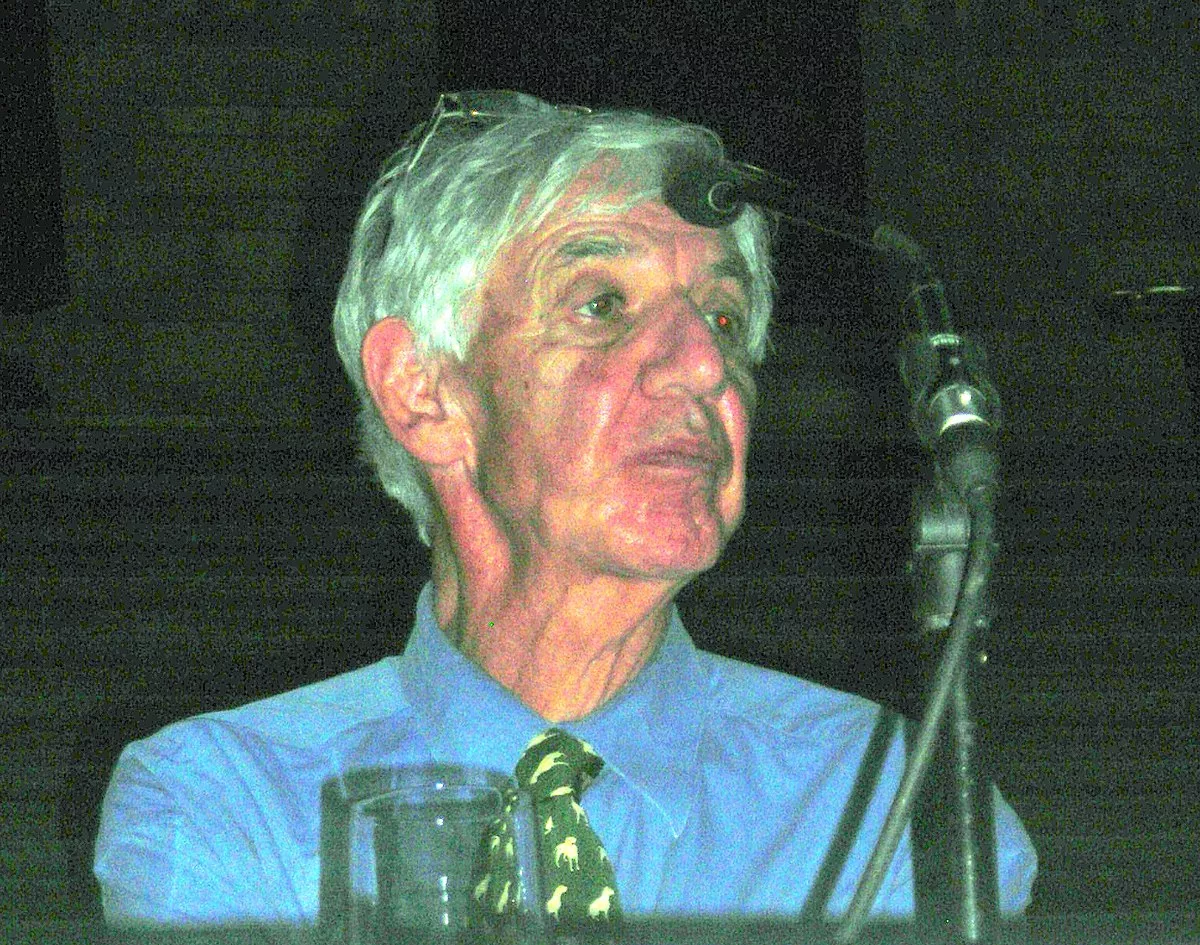 1.
1. Lewis Wolpert wrote several science books, including: Triumph of the Embryo, Malignant Sadness, Six Impossible Things Before Breakfast: the Evolutionary Origins of Belief, and How We Live And Why We Die: The Secret Lives of Cells.

 1.
1. Lewis Wolpert wrote several science books, including: Triumph of the Embryo, Malignant Sadness, Six Impossible Things Before Breakfast: the Evolutionary Origins of Belief, and How We Live And Why We Die: The Secret Lives of Cells.
Lewis Wolpert was born on 19 October 1929, in Johannesburg to Sarah and William Lewis Wolpert in a South African Jewish family of Lithuanian Jewish origin.
Lewis Wolpert's aunt, Helen Suzman, was a South African anti-apartheid activist and politician.
Lewis Wolpert worked as an assistant to the director of Building Research Institute, Pretoria, before going to Israel and working for the Water Planning Board.
Lewis Wolpert went on to study soil mechanics at Imperial College London and later completed his doctorate from King's College London under biophysicist James Danielli.
Lewis Wolpert shifted focus from applying his knowledge of soil mechanics to studying the science of dividing cells on the recommendation of a friend in South Africa.
Lewis Wolpert served as a lecturer and then a reader in King's College London.
Lewis Wolpert went on to hold the position of Emeritus Professor of Biology as Applied to Medicine in the Department of Anatomy and Developmental Biology at University College London until his retirement at 74.
Lewis Wolpert was elected to the American Philosophical Society in 2002.
Lewis Wolpert was best known for the French flag model of embryonic development, which he put forward in a 1969 paper titled Positional Information and the Spatial Pattern of Cellular Differentiation in the Journal of Theoretical Biology.
Biologists recognise Lewis Wolpert for elaborating and championing the ideas of positional information and positional value: molecular signals and internal cellular responses to them that enable cells to do the right thing in the right place during embryonic development.
Lewis Wolpert said he thought the general public needed to understand that people are a society of cells, particularly if they wanted to understand humans.
Lewis Wolpert believed that one very important, and so far unsolved, question in cellular research is the origins and evolution of the first cell, as well as the question of cell behaviour, which in his opinion would be useful for the study of illnesses such as cancer or Alzheimer's disease.
Lewis Wolpert debated with Christian philosopher William Lane Craig about the existence of God, Christian astrophysicist Hugh Ross on whether there is a case for a creator, and William Dembski on the topic of intelligent design.
On 25 May 1994, Lewis Wolpert conducted an hour-long interview with Francis Crick called "How the Brain 'sees'" for The Times Dillon Science Forum; Just Results Video Productions produced a video of the interview for The Times.
Lewis Wolpert disagreed with Sheldrake on the possibility of simulating a cell or an embryo on a computer, which Lewis Wolpert believed would be attainable within 20 years.
Lewis Wolpert stated that he believed doing so would predict in detail how the cell will behave, although he admitted to the difficulty of this task due to the complex networks of proteins, protein-to-protein interactions, and the vast amount of molecules in the cell.
Lewis Wolpert presented three television programmes based on that book and entitled A Living Hell on BBC2.
Lewis Wolpert was made a Fellow of the Royal Society in 1980 and awarded the CBE in 1990.
Lewis Wolpert became a Fellow of the Royal Society of Literature in 1999 and one of the first Fellows of the Academy of Medical Sciences in 1998.
In 1986 Lewis Wolpert was invited to deliver the Royal Institution Christmas Lecture on Frankenstein's Quest: Development of Life.
Lewis Wolpert was chair of the Committee on the Public Understanding of Science between 1994 and 1998.
Lewis Wolpert was the recipient of the Michael Faraday Medal and Prize for science communication from the Royal Society in 2000.
Lewis Wolpert dismissed bioethical concerns about human cloning and embryo research, though he had stated a position against human cloning saying, "the child would almost certainly be ill or be abnormal".
Lewis Wolpert was an atheist and took part in public debates about science and religion, though he admitted that some people benefit from religious experiences.
Lewis Wolpert was the vice-president of the British Humanist Association.
Lewis Wolpert was a lifelong friend of the fellow South African and author Jillian Becker, editor of the Atheist Conservative.
Lewis Wolpert went on to write a number of popular science books, including The Unnatural Nature of Science, Six Impossible Things Before Breakfast: The Evolutionary Origins of Belief, Triumph of the Embryo and How We Live And Why We Die: The Secret Lives of Cells.
In 2011, Lewis Wolpert published You're Looking Very Well, a book on the social and scientific aspects of aging.
Lewis Wolpert apologised and took responsibility for the errors with the explanation "totally inadvertent and due to carelessness".
Lewis Wolpert married his first wife Elizabeth Brownstein in 1961 in a marriage that ended in divorce.
Lewis Wolpert later married the Australian writer Jill Neville and they remained married until Neville's death from cancer in 1997.
Lewis Wolpert married Alison Hawkes in 2016 and the couple remained married until his death.
Lewis Wolpert died on 28 January 2021, from COVID-19-related complications during the COVID-19 pandemic in England.